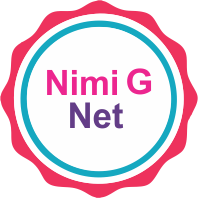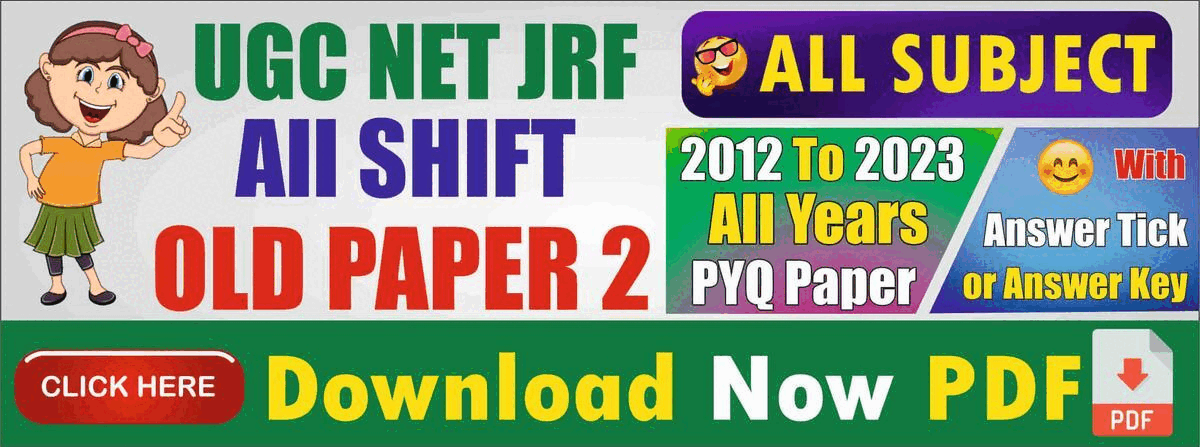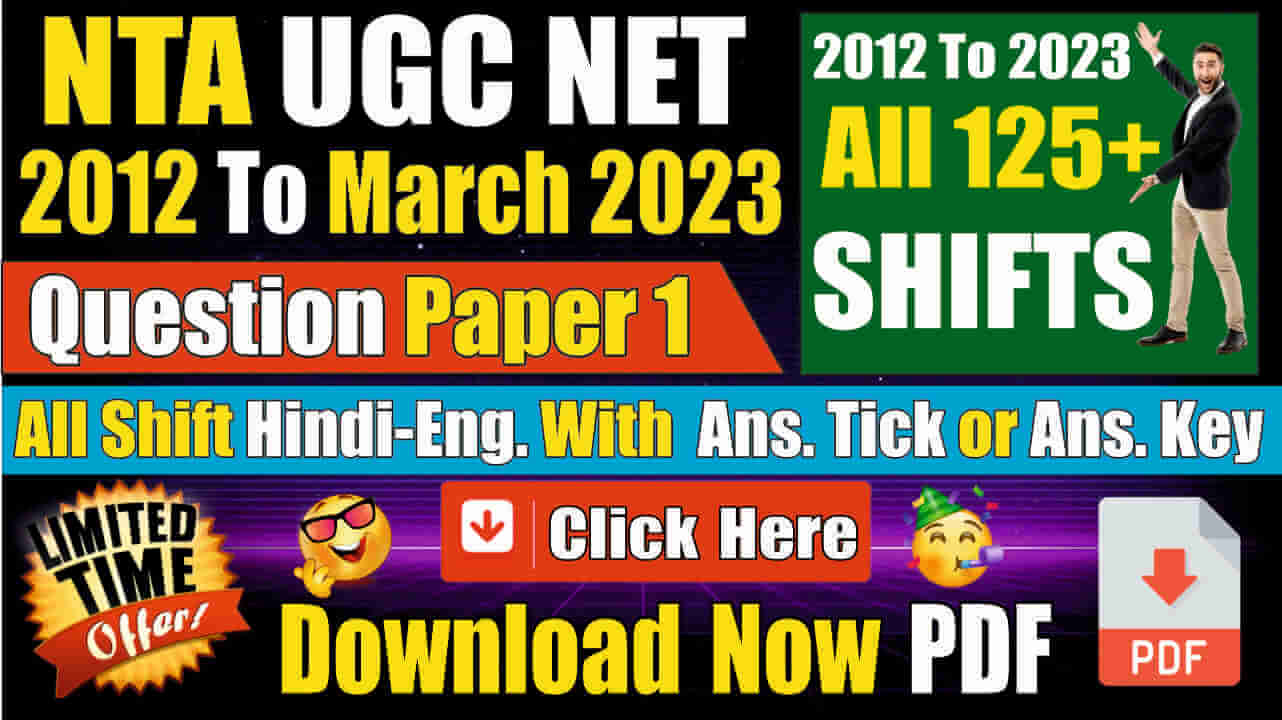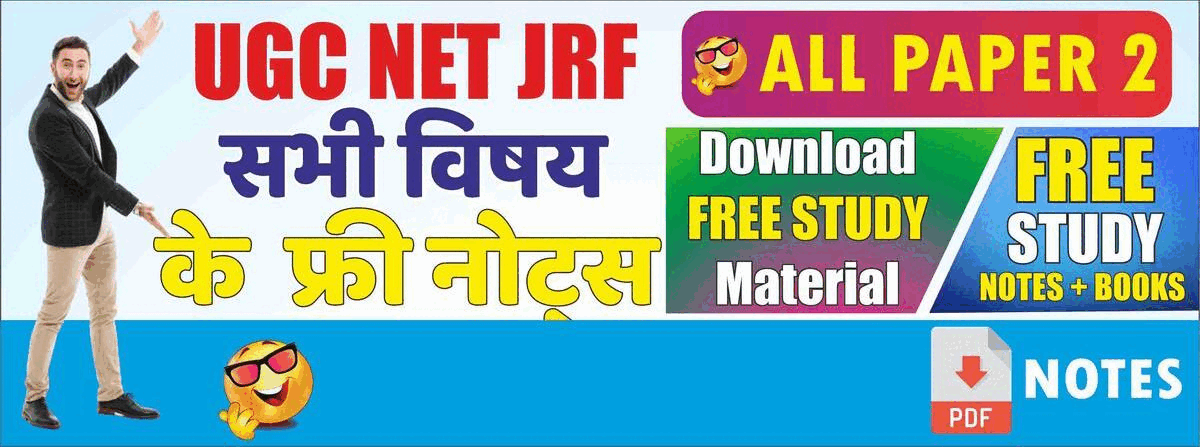Are you searching for the UGC NET Physical Education Syllabus 2023 PDF Download? Look no further, as we have compiled all the important details and tips to help you prepare for the exam.
The UGC NET Physical Education exam is conducted by the National Testing Agency (NTA) for candidates who wish to pursue a career in the field of Physical Education. The exam assesses the candidates’ knowledge in the subject and tests their eligibility for lectureship and research fellowships.
If you are planning to appear for the UGC NET Physical Education 2023 exam, it is important to have a thorough understanding of the syllabus and exam pattern. In this article, we have compiled all the important information you need to know about the UGC NET Physical Education Syllabus 2023 PDF Download
UGC NET Physical Education Exam Pattern 2023:
The UGC NET Physical Education exam consists of two papers – Paper 1 and Paper 2. Both papers are conducted on the same day, and the duration of each paper is 3 hours. The exam is conducted online, and each question carries 2 marks. There is no negative marking for incorrect answers.
The UGC NET Physical Education Exam consists of two papers: Paper 1 and Paper 2.
Paper 1:
- Duration: 3 hours
- Number of questions: 50
- Total marks: 100
- Type of questions: Multiple Choice Questions (MCQs) based on general aptitude, teaching and research aptitude, and current affairs.
Paper 2:
- Duration: 3 hours
- Number of questions: 100
- Total marks: 200
- Type of questions: MCQs based on Physical Education subjects.
Both papers are conducted in a single session with no break in between. The candidates are required to appear for both papers to be considered for the selection process.
It’s important to note that there is no negative marking for incorrect answers in UGC NET Physical Education Exam.
UGC NET Physical Education Syllabus 2023: Download PDF
The UGC NET Physical Education syllabus is divided into two parts – Paper 1 and Paper 2. Here’s a detailed syllabus for both papers.
Paper 1 Syllabus:
Teaching Aptitude:
- Teaching: Nature, objectives, characteristics, and basic requirements.
- Learner’s characteristics: Characteristics of adolescent and adult learners, and individual differences.
- Methods of teaching: Teacher-centered vs. learner-centered methods; Off-line vs. online methods.
- Evaluation systems: Elements and types of evaluation, evaluation in higher education, and grading system.
Research Aptitude:
- Research: Meaning, types, and characteristics.
- Steps of research.
- Methods of research.
- Research Ethics.
Reading Comprehension:
- Comprehension passages.
Communication:
- Communication: Nature, characteristics, types, barriers, and effective communication.
- Verbal and non-verbal communication.
- Classroom communication.
Logical Reasoning:
- Understanding the structure of arguments.
- Evaluating and distinguishing deductive and inductive reasoning.
- Verbal analogies.
Data Interpretation:
- Sources, acquisition, and interpretation of data.
- Quantitative and qualitative data.
- Graphical representation and mapping of data.
Paper 2 Syllabus:
Nta Ugc Net Physical Education Syllabus 2023 in English
Unit -I:
Physical education and adapted physical education, their objectives Philosophies of education as applied to physical education
Development of Physical education in Greece, Rome, Sweden, Russia England, Denmark, Germany, USA, Australia and China.
Growth and development of physical education in India:
Recreation- its principles, characteristics and importance. Modern trends in recreation. Indoor and outdoor recreational programmes. Recreational programmes for various categories of people.
Wellness- its importance, benefits and challenges. Development and maintenance of wellness.
Teaching Aptitude – nature, objectives, characteristics of teaching, learner characteristics and teaching methods.
Social aspects of sports- sports as a socializing agency, social values , sports leadership, sports as cultural heritage and social aspects of competition.
Ancient & Modern Olympics games, Asian and Commonwealth games.
1
Structure and functions of international and national bodies controlling various games and sports,. Prominent honours and awards in games and sports.
Unit -II:
Exercise physiology its scope and importance in the field of physical education and sports.
Cardio respiratory adaptations to long and short term physical activities.
Muscle- its types , characteristics and functions. Microscopic structure of muscle fibre. Sliding filament theory of muscular contraction. Types of muscle fibres and sports performance. Muscular adaptations to exercise.
Neuro-muscular junction and transmission of nerve impulse, kinesthetic Sense organs and neural control of motor skills.
Bio-chemical aspects of exercise – Metabolism of food products. Aerobic and anaerobic systems during rest and exercise. Direct and indirect methods of measuring energy cost of exercise.
Recovery process – Physiological aspects of fatigue. Restoration of energy stores. Recovery oxygen. Nutritional aspects of performance.
Environmental influence on human physiology under exercise.
Women in sports- trainability. Physiological gender differences and special problems of women athletes.
Aging – Physiological consequences, life style management and healthful aging.
Physiological responses of various therapeutic modalities and rehabilitation.
Physiological aspects of various Ergogenic aids. Massage manipulations and their physiological responses.
2
Unit- III:
Kinesiology and biomechanics. Modern trends in biomechanics. Planes and Axes of human body. Joints and their movements.
Muscle attachments – Origin, insertion, action and leverage of the principal muscles used in sports.
Motion: its laws and their application in sports. Projectile and principles of projections
Linear and angular kinematics and kinetics.
Friction, Spin, impact and elasticity.
Air and water dynamics.
Mechanical advantage and applications of Levers in sports.
Posture and its deformities with their corrective exercises.
Kinesiological, Muscular and mechanical analyses of fundamental movements:
Mechanical analyses of major sports skills
Unit – IV:
Sports psychology- its importance in the field of physical education and sports.
Motivation in sports- types, theories and dynamics.
Psychological factors affecting sports performance- Emotions, Anxiety aggression, stress ,self confidence, concentration , mental practice and goal setting.
Personality- Theories of personality, measurement of personality.
3
Group dynamics, Group cohesion and leadership in sports.
Cognitive process- memory and thinking. Principles of Motor skill learning.
Transfer of training and its types with its implication in sports.
Long and short term psychological preparation for performance/ competition.
Psychological skill training for activation and relaxation
Spectators and sports performance.
Unit -V:
Development of teacher education for physical education in India. Comparative study of professional preparation in physical education of India with those of USA, Russia, Germany, Australia and UK.
Professional and other courses of physical education in India. Role of Government agencies monitoring professional courses in physical education.
Qualities, qualifications and responsibilities of physical education personnel at primary, secondary and higher education levels. Scope of physical education personnel in the promotion of health, fitness and wellness.
Recent Government policies for promoting physical education and sports in India.
Hierarchy of organizational set-up in physical education at schools, colleges and university level.
Role of public & private sectors in the promotion of physical education and sports in the country.
Curriculum development- Concepts and principles of curriculum planning. Subject matter for different levels of education – primary, secondary and higher education.
4
Curriculum design and content- importance, selection and classification of subject matter with reference to age, sex and differently abled pupils. Integrated programme for boys and girls.
Teaching aids – Time-table, Concepts, credit system for various subject courses- theory and practical, Impact of technology in physical education and sports,
Curriculum evaluation: Concepts and purpose; procedure and appraisal.
Unit -VI:
Health- its objectives and spectrum. Health education, its importance and principles . Role of genetics and environment in achieving health. Health-related physical fitness.
Community health programme- Health appraisal & health instructions. International and national health promoting government & private agencies.
School Health programme and personal hygiene.
Communicable diseases: causes, symptoms, prevention through other means and Immunization.
Psychosomatic disorders/ sedentary life style diseases : causes, symptoms and prevention.
Obesity related health problems. Body weight control and its significance on health. Role of exercise, dieting and combination of exercise & dieting on weight control.
First-aid- objectives and principles. First-aid for Shock, poisoning, burns, drowning, bleeding, electric shock and common sports injuries.
Pollution- Air, water, sound and radiation. Effects of pollution on health, Preventive and safety measures from pollution.
5
Nutrition- Balanced diet and its components. Nutritional Deficiencies. Understanding of malnutrition and nutritional supplements.
Effects of smoking, alcohol, & drugs on health; prevention and rehabilitation.
Unit -VII :
Sports training- its characteristics and principles. Training load, its features, principles and adaptation process. Means and methods of executing training load. Overload, its Causes, symptoms and remedial measures.
Strength- its characteristics, types of strength, factors determining strength and strength development.
Endurance- its characteristics, types of endurance, factors determining endurance and endurance development.
Speed- its characteristics, types of Speed, factors determining Speed and speed development.
Flexibility-its characteristics, types of flexibility, factors determining flexibility and flexibility development.
Coordinative abilities- its characteristics, types of coordinative abilities, factors determining coordinative abilities and development of coordinative abilities.
Technique and skill- its characteristics and importance. Different stages of technique development and technique training. Tactics and strategy.
Planning- its importance and principles. Types of planning.
Periodization- its importance, objectives and types of periodization. Concept of different periods – Preparatory, competition and transitional. Types of Competition:
Talent identification- process and procedure.
6
Unit -VIII:
Research in physical education- its importance and classification. Ethical issues in research. Methods of research- Descriptive, historical and experimental. Experimental research designs.
Identification and formulation of research problem. Types of research hypotheses and their formulation. Hypotheses testing.
Tools of research- Questionnaires, opinionnaires, interviews and observation.
Sources and steps of literature search- library, research data bases, internet- search engines, online journals. Note taking and critical reading.
Sampling Techniques- Probability and non probability.
Data, its types and collecting measures.
Normal probability curve and grading scales.
Statistical processes, their importance and uses in research. Application of parametric and non parametric statistical techniques in research.
Computer applications- statistical packages for data analyses- SPSS, e-mail, search engines and Microsoft office.
Preparation of research proposal, report, abstract, paper for publication and paper for presentation.
Unit – IX:
Test, measurement and evaluation -their types and importance in physical education and sports. Principles and processes of evaluation in physical education.
Criteria of selecting an appropriate test and administration of testing programme.
7
Types of tests and construction of standard knowledge and skill tests.
Tests for fitness- Physical fitness, motor fitness, motor ability and motor educability. Health related fitness tests.
Test for fitness components- strength, endurance, speed, flexibility and coordinative abilities.
Sports skill tests- Badminton, Basketball, Football, Hockey, Tennis, and Volleyball.
Anthropometric Measurements- land marks and measurement of various body segments ,height, sitting-height, weight, diameters, circumferences, skinfolds, body mass index, ponderal index.
Somatotype and Posture evaluating techniques.
Testing of physiological phenomenons- Blood pressure, breathing frequency vital capacity, heart rate, pulse rate, body temperature and body composition.
Tests for psychological variables- Anxiety, aggression, team cohesion, achievement motivation, mental-toughness, and self-efficacy.
Unit – X:
Management- its principles and theories. Scope of management in physical education and sports. Guiding principles for organizing physical education & sports programmes in institutions.
Personnel management- objectives and principles. Self-appraisal, communication skills and time management. Essential skills of administration.
Financial management- objectives, purposes, principles and scope. Planning and preparation of budget. Mechanics of purchase and auditing.
8
Supervision – objectives, principles and importance of supervision. Techniques of supervision. Duties and responsibilities of a supervisor.
Facility management- planning, procuring and maintenance of facilities- indoor and outdoor facilities. Planning and management of sports infrastructure. Management of records.
Role of sports manager- interpersonal, informational and decision making. Managerial skills – technical, human and conceptual. Qualities and qualification of sports manager.
Event management- its principles, planning, check list, rehearsal, itinerary, execution, reporting and follow-up procedures of an event.
Public relation- principles of public relations in physical education and sports. Mass Media- communication and publicity, qualifications of Public relation officer.
Paper 2 Syllabus Download Pdf:
Ugc Net Physical Education Syllabus 2023 in English
Ugc Net Physical Education Syllabus 2023 in Hindi
Preparation Tips for UGC NET Physical Education Exam 2023:
Here are some tips for preparing for the UGC NET Physical Education exam 2023:
- Understand the syllabus and exam pattern thoroughly.
- Make a study plan
- Refer to standard textbooks and study materials recommended for the exam.
- Practice previous year question papers and mock tests.
- Focus on time management and accuracy while attempting the questions.
- Take regular breaks and maintain a healthy lifestyle to avoid burnout.
- Join coaching classes or online courses if necessary.
- Stay updated with current affairs related to the Physical Education field.
Important Points:
- The UGC NET Physical Education exam is conducted by NTA for candidates who wish to pursue a career in Physical Education.
- The exam assesses the candidates’ knowledge in the subject and tests their eligibility for lectureship and research fellowships.
- The exam pattern of UGC NET Physical Education 2023 includes multiple-choice questions and is conducted in online mode.
- The marking scheme of the exam is +2 for a correct answer and no negative marking for incorrect answers.
- The duration of the exam is 3 hours, and the number of questions is 150.
- The UGC NET Physical Education Syllabus 2023 PDF Download is an important document that provides a detailed outline of the topics that will be covered in the exam.
- To download the syllabus, candidates can visit the official website of NTA and click on the link provided.
- The syllabus is available in PDF format and can be downloaded for free.
- The syllabus is divided into nine units, each covering a specific topic related to Physical Education.
- To prepare for the exam, candidates must understand the syllabus, make a study plan, practice previous year question papers, join a coaching institute, take mock tests, and revise regularly.
FAQs:
- Is there any negative marking in the UGC NET Physical Education exam 2023? Ans: No, there is no negative marking for incorrect answers.
- Can I download the UGC NET Physical Education Syllabus 2023 PDF from the official website? Ans: Yes, the syllabus is available for download on the official website of NTA.
- What is the duration of the UGC NET Physical Education exam 2023? Ans: The duration of each paper is 3 hours.
Also Check:
Conclusion:
In conclusion, the UGC NET Physical Education exam 2023 is a crucial opportunity for aspirants who want to pursue a career in the teaching or research field. To crack the exam, it’s essential to have a clear understanding of the syllabus, exam pattern, and prepare accordingly. With a comprehensive understanding of the UGC NET Physical Education Syllabus 2023 PDF download and proper preparation, you can clear the exam with flying colors.






1 thought on “[New] UGC NET Physical Education Syllabus 2023 PDF Download”